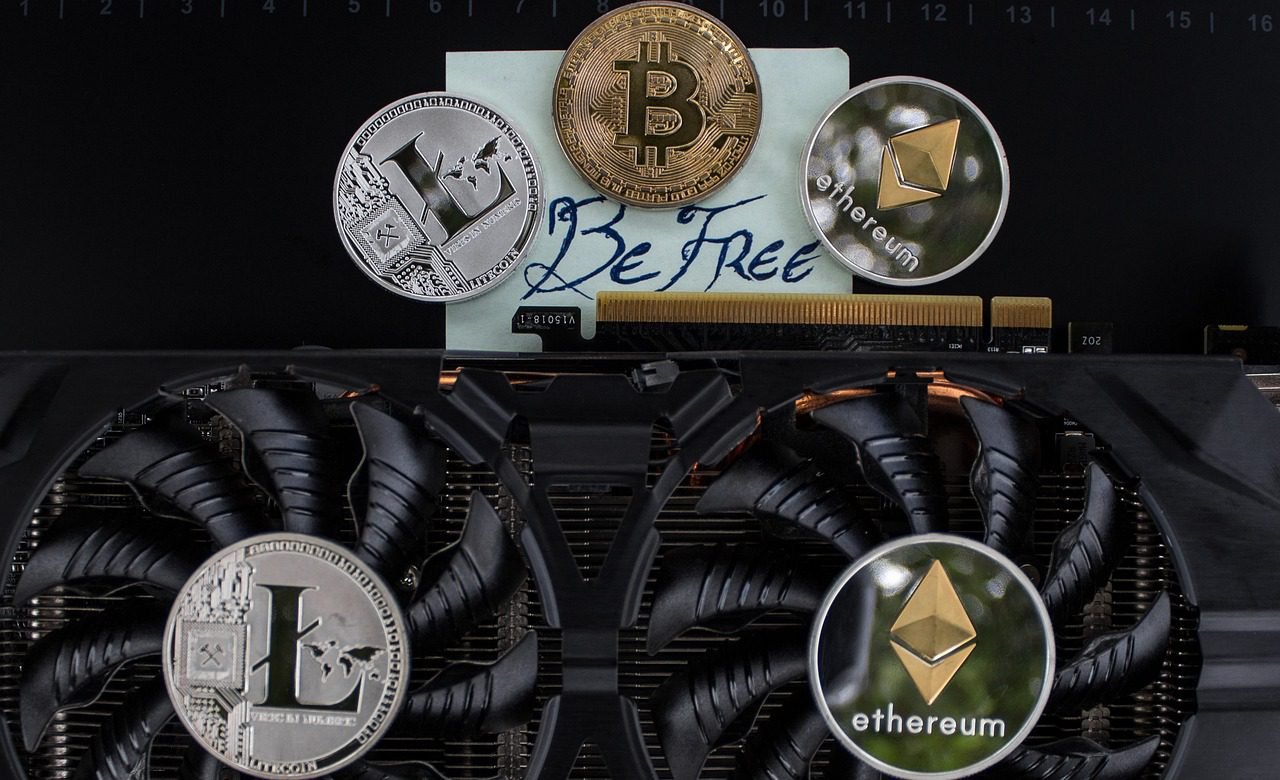Along with transforming the banking sector, the emergence of cryptocurrencies brought a potent idea called smart contracts. Many cryptocurrencies now revolve around these self-executing contracts, coded in code and kept on blockchain systems, which permit automatic, trustless transactions and agreements free from middlemen. Knowing the mechanics and uses of smart contracts becomes ever more crucial as more sectors investigate blockchain technologies. Examining their history, features, advantages, difficulties, and central importance in the bitcoin ecosystem, this paper explores the realm of smart contracts.
Welcome to Smart Contracts
Original Definition and Origin
Smart contracts are self-executing agreements directly written in code terms of agreement. These agreements eliminate the need for middlemen like attorneys, notaries, or banks by automatically enforcing and running the terms when particular prerequisites are satisfied. Long before blockchain technology first emerged, computer scientist Nick Szabo first presented the idea of smart contracts in the late 1990s. Szabo imagined digital contracts able to be carried out and enforced by computer networks without outside third-party intervention.
Blockchain technology—especially with the release of Ethereum in 2015—found its perfect home with smart contracts. Smart contracts might run on blockchain’s distributed, unchangeable, transparent character, which would allow automated and safe transactions across many sectors.
The Part Smart Contracts Play in Blockchain Technology
Smart contracts in the context of blockchain technology are initiatives housed on Ethereum, Binance Smart Chain, and other blockchain platforms. By facilitating, verifying, and enforcing the negotiation and performance of an agreement, these contracts reduce the danger of fraud and the necessity for middlemen. Essential to the operation of decentralized finance (DeFi), non-fungible tokens (NFTs), and many other blockchain-based advancements, smart contracts are a basic component of distributed apps (dApps).
How Effective Contractualism Works
The Construction and Elements of a Smart Contract
All that a smart contract is a piece of code specifying the terms and conditions of an agreement between two or more parties. Stored on a blockchain network, the code is kept transparent and unchangeable by repeated replication. The contract comprises three primary elements:
One. Parties Involved: Contractual members that accept the terms and conditions.
Second. ** Conditions:** The particular requirements or guidelines the contract must follow to be operative.
Thirdly. Once the requirements are met, the activities that will be carried out automatically.
In a basic smart contract for an online transaction, for instance, the terms may provide that the vendor will get paid after the customer certifies receipt of the items. Once the buyer confirms the delivery, the contract will instantly release the payment to the seller, so guaranteeing that both sides meet their responsibilities.
Important Platforms Encasing Smart Contracts
While several blockchain systems allow smart contracts to be created and executed, Ethereum is the most well-known one. With a “Turing-complete” blockchain—that is, one able to run any code described mathematically— Ethereum brought about Ethereum is the preferred platform for developers building distributed apps and smart contracts since it offers this adaptability.
Other systems supporting smart contracts consist in:
Rising as a substitute for Ethereum, Binance Smart Chain (BSC) is well-known for its low fees and great performance.
For distributed applications, Solana is a fast blockchain with low transaction costs and scalability.
Supported by smart contracts across its ecosystem, Polkadot is a multi-chain platform that allows several blockchains to interact and exchange data.
Supported by its Plutus architecture, Cardano is a research-driven blockchain platform stressing security and scalability and supporting smart contracts.
Blockchain Method of Execution
Deployed on a blockchain, a smart contract assigns a distinct address for interaction by participants. Stored on the blockchain, the contract’s code and state—that which comprises conditions, and balances—ensures immutability and openness.
Participants of a smart contract have to transmit a transaction to the address of the contract, therefore activating the contract’s code. Should the terms of the contract be satisfied, it will automatically carry out the premeditated acts. In a smart contract for a token transfer, for example, the contract will distribute the tokens to the receiver should the sender have enough balance and the transaction satisfies the necessary criteria.
There is no human involvement in the automated execution method. Along with improving productivity, this automation lowers fraud risk and error possibility.
Features of Smart Contracts
Effective Automation and Efficiency
Smart contracts mostly help with their capacity to automate tasks that would otherwise call for human involvement. Smart contracts save time and lower the possibility of human error by running automatically upon conditions satisfied. Industries such as finance, supply chain management, and real estate—where transactions are frequent and complicated—where this efficiency is especially useful.
Trustlessness and Safety
Operating on blockchain networks, smart contracts are naturally safe because of their distributed and cryptographic qualities. Once a smart contract is implemented on the blockchain, it cannot be changed or tampered with, therefore guaranteeing that the conditions of the agreement are enforced exactly. This immutability fosters confidence between parties since it guarantees that the agreement will be carried out as planned without the necessity of middlemen or outside supervision.
Immutability and Transparency
One more major benefit of smart contracts is their openness. Since the blockchain stores the code and status of a smart contract, all users may check its execution and examine its terms. This openness guarantees that both sides have access to the same knowledge and helps to lower conflict risk. Furthermore, the immutability of the blockchain guarantees that once the contract is used, it cannot be altered or undone, therefore giving all users confidence and protection.
Cost-Effectiveness by Deleted Intermediaries
To monitor and enforce the terms of the agreement, traditional contracts sometimes call for intermediaries including banks, notaries, and attorneys. These middlemen complicate the procedure and incite expenses. Conversely, smart contracts automate the execution of the contract on the blockchain therefore removing the need for middlemen. For both companies and people, this decrease in outside engagement can result in major financial savings.
Obstacles and Restraints
Technical Complicates and Programming Mistakes
Though smart contracts have numerous advantages, they are not without difficulties. The technical difficulties of designing and implementing smart contracts rank among the main worries. Smart contract codes have to be exact and error-free since any errors could cause unanticipated results like fund loss. As the DAO attack in 2016 showed, even a minor code error can have major repercussions; a weakness in the smart contract resulted in the theft of millions of dollars in cryptocurrencies.
Blockchain Network Scalability Problems
Still, another difficulty for smart contracts is scalability. As the number of users and apps rises, blockchain systems—especially Ethereum—have battled congestion and high transaction fees. Because sluggish transaction times and high fees could discourage consumers from using the technology, this scalability problem can impede the general adoption of smart contracts.
Legal and Compliance Issues
The legal and regulatory environment for smart contracts is still developing, and many unresolved issues regarding their treatment under current laws remain existent. Smart contracts, for instance, might not be accepted as legally binding agreements in every nation, and courts of law enforcement could find difficulties enforcing them. Furthermore, the distributed and transnational character of blockchain technology complicates regulatory control, which can cause possible disputes between several legal systems.
Security Vulnerabilities and Hacks
Smart contracts are not perfect even if they come with natural security; they are vulnerable. As several well-publicized incidents show, hackers have taken advantage of weaknesses in smart contract programming to pilfer money and cause disturbance of operations. Smart contract security calls for thorough testing, auditing, and best coding standards. Developers have to be alert to guard against such intrusions and keep changing their agreements to handle new risks.
Real-World Uses for Smart Contracts
Decentralized Funding (DeFi)
Among the most well-known uses for smart contracts is decentralized finance (DeFi). Without conventional financial institutions, DeFi systems let consumers borrow, lend, trade, and invest in cryptocurrencies. By automating these tasks, smart contracts guarantee open and safe transaction execution. DeFi apps range from yield farming systems to lending platforms like Aave to distributed exchanges (DEXs) like Uniswap.
Supply Chain Management
smart agreements
By automating tasks including tracking shipments, checking validity, and handling payments, they are also being applied to simplify supply chain management. Smart contracts guarantee responsibility and openness by tracking each supply chain action on the blockchain, therefore lowering the chance of fraud and mistakes. Blockchain-based supply chain systems have been adopted by businesses such as Walmart and IBM to increase traceability and efficiency.
Digital Verification and Identification
By letting people securely control and validate their data on the blockchain, smart contracts can become quite important in digital identity management. Identity verification in many different contexts—including KYC (Know Your Customer), access control, and online authentication—can be accomplished using this technology. Smart contracts improve privacy and security by doing away with centralized authorities’ requirements to oversee identification data.
Management of Copyright and Intellectual Property
Another area where smart contracts are having influence is the safeguarding of intellectual property (IP) rights. Smart contracts let creators register and control their intellectual property rights on the blockchain, therefore safeguarding their work and guaranteeing just pay. Smart contracts let artists, for instance, automatically pay royalties for the use of their music, artwork, or other creative output.
Gaming and NFTs
Through the creation of non-fungible tokens (NFTs), which reflect special digital assets including in-game items, collectibles, and virtual real estate, the gaming business has adopted smart contracts. By allowing players to create, trade, and own NFTs on blockchain networks, smart contracts give gamers fresh means to profit from their experiences and engage in distributed gaming ecosystems.
Subjective Views on Smart Contract Future
Real-world Knowledge from Industry Leaders and Blockchain Developers
Though opinions on the future of smart contracts vary among blockchain experts, the overall agreement is that the technology will keep developing and be fundamental in the emergence of distributed applications. Co-founder of Ethereum Vitalik Buterin thinks smart contracts will get more sophisticated and allow more creative uses outside basic financial transactions.
To fully exploit the possibilities of smart contracts, other business executives such as Cardano’s founder, Charles Hoskinson, stress the requirement of interoperability between several blockchain systems. The viability of the technology depends on being able to easily integrate and interact with smart contracts across several blockchains as additional platforms open and fight in the sector.
Forecasts on Smart Contract Evolution and Effects
Smart contracts should grow in accessibility and simplicity going forward, so appealing to a larger audience. More people and companies will be able to design and use smart contracts without needing thorough technical knowledge as development tools and instructional materials advance. From finance to healthcare to real estate, this democratization of smart contract technology might result in broad acceptance throughout many sectors.
Furthermore, the combination of smart contracts with artificial intelligence (AI) and machine learning can produce even more strong and flexible systems. Smart contracts driven by artificial intelligence might automatically change their conditions depending on real-time data, therefore offering fresh degrees of efficiency and freedom in contract administration.
Extra Tools and Data
Smart Contract Courses and Educational Platforms
For individuals curious about smart contracts, there are lots of online courses and resources accessible. Coursera, Udemy, and edX among other websites provide courses on blockchain development, smart contract programming, and distributed apps. From beginners to seasoned developers, these courses accommodate varying degrees of ability.
Tools for Creating and Examining Smart Contracts
Various tools and frameworks meant for this use can help developers wishing to create and use smart contracts. Among the common instruments are:
Online IDE for Ethereum smart contract deployment, testing, and writing:
Ethereum’s development framework, Truffle streamlines the building, testing, and deployment of the smart contracts process.
An Ethereum development personal blockchain called Ganache lets creators test their contracts in a local setting.
A development environment for Ethereum smart contract building, testing, and deployment is hardhat.
Newest Field Research and Development Projects
Smart contracts are an area that is always changing and new ideas and studies are arising often. Following reliable sources include academic publications, blockchain conferences, and industry blogs helps one remain current with the newest trends and ideas. Among the important events worth seeing are the Blockchain Expo series, Consensus by CoinDesk, and Ethereum Devcon.
Finally
Emerging as a new technology supporting many of the developments in the bitcoin scene are smart contracts. Smart contracts save middlemen, lower expenses, and boost efficiency by automating and securing transactions on blockchain systems. Notwithstanding the difficulties and restrictions, smart contracts have great power to revolutionize several sectors. Smart contracts will probably become even more important in determining the direction of distributed apps and the digital economy as long as technology develops.
Ask questions
Q: Describe a smart contract.
A smart contract is a self-executing contract with agreement terms straight into code. When particular prerequisites are satisfied, it automatically enforces and runs the terms.
Which blockchain systems allow smart contracts to exist?
Though several platforms such Binance Smart Chain, Solana, Polkadot, and Cardano also enable smart contracts, Ethereum is the most well-known platform for them.
Q: Using smart contracts offers mostly what advantages?
A: By cutting middlemen, automation, efficiency, security, transparency, and cost-effectiveness follow from primary advantages.
Q: In what actual fields may smart contracts find use?
Decentralized finance (DeFi), supply chain management, digital identity verification, intellectual property management, and gaming—e.g., NFTs—use smart contracts.
Q: Why can smart contracts provide difficulties?
Technical complexity, coding mistakes, scalability problems, legal and regulatory concerns, and security flaws are among the challenges.





